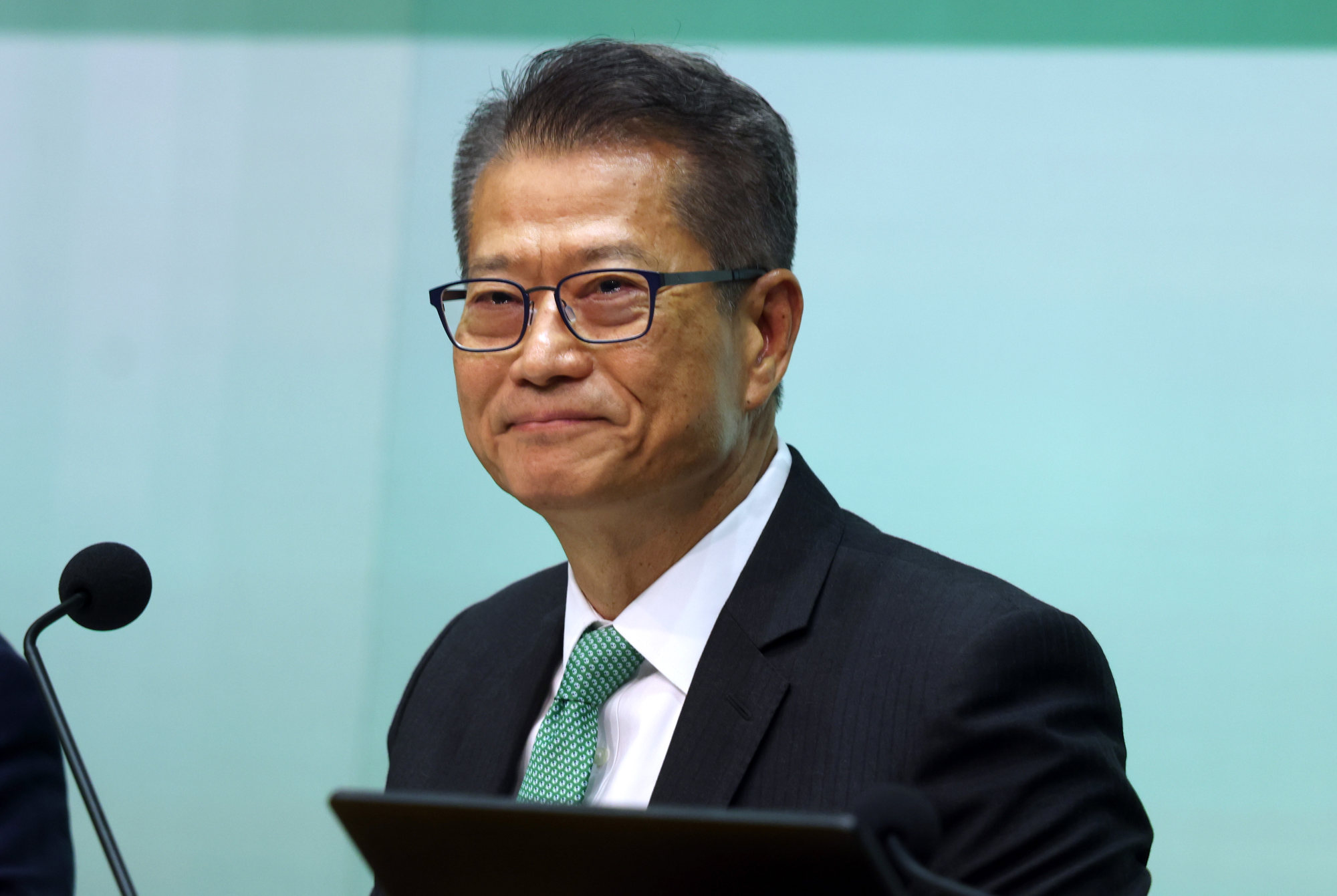
Hong Kong to record higher-than-expected deficit due to shrinking income from stamp duties, land sales: Paul Chan
- Finance chief assures stakeholders that government has no plans to raise salary and profits taxes, expresses confidence in efforts to bring in companies to boost revenue
- ‘The deficit for the current fiscal year will be a bit higher … mainly because the revenue from the stamp duties and land sales will be less than expected,’ Chan adds
Hong Kong will record a higher-than-expected deficit in the current fiscal year as shrinking revenue from stamp duties and land sales have taken a toll on government coffers, the finance chief has said.
“The deficit for the current fiscal year will be a bit higher than our original forecast mainly because the revenue from the stamp duties and land sales will be less than expected,” Chan said.
“The measures in the policy address will cost about several billions of dollars every year … but we don’t have any plans to raise taxes, whether it is the salary tax or profits tax.”

But Chan on Thursday expressed optimism over the state of public finances and said the government’s drive to encourage overseas companies to set up shop in Hong Kong could help generate revenue.
“There must be ups and downs in a fiscal cycle,” he said. “We don’t need to haggle over an annual deficit or surplus as long as we have exercised a balancing act.”
The ambitious initiative is set to cost about HK$100 billion and also aims to create 900,000 flats for 2.5 million people.
“This is only the beginning and we will continue to work hard and attract foreign businesses and capital to Hong Kong, which will eventually contribute to our taxation income if they can make money,” he said. “All in all, we are confident in generating taxation income.”
The government earlier revised its full-year growth forecast for 2023 from between 3.5 and 5.5 per cent to between 4 and 5 per cent, predicting a weakened global trade environment would further weigh on exports.
Chan on Thursday warned that external factors, such as high interest rates in the United States and global geopolitics, would constantly influence the city’s relatively small economy.
He also stressed that the Office for the Financing of Major Development Projects, which was featured in Lee’s policy address, was exploring various fundraising options, including issuing bonds, to ensure the city’s megaprojects did not weigh too heavily on government coffers.
“These large-scale infrastructure projects will generate a return and they are worthy of investment. But, we can turn to some financial institutions or the public for raising capital,” he said.
“For example, is it possible to issue bonds to the public for raising funds? That’s why we set up the office to explore the financing options.”
The government office would also help determine how and when the authorities would secure the capital, he added.
The three artificial islands will span 1,000 hectares (2,471 acres) off the shores of Lantau Island and are expected to cost about HK$580 billion.
The artificial islands will pave the way for development that will produce 210,000 flats to house 500,000 people.
Professor Terence Chong Tai-leung, executive director of Chinese University’s Lau Chor Tak Institute of Global Economics and Finance, estimated that in a worst-case scenario, the city could see the deficit grow by a further HK$30 billion if the economy performed poorly.
He expected the government’s deficit would likely expand in the future due to the planned infrastructure projects, with the potential tax revenue brought by overseas companies coming to the city unlikely to be enough to offset drops in other sources of government income.
Gary Ng Cheuk-yan, senior economist at Natixis, said he believed that Hong Kong’s deficit would likely increase in the future given the city’s increasing expenses due to the ageing population and mega infrastructure would outpace growth of revenue.
Ng noted that if Hong Kong could provide opportunities for talent and businesses to make money, it would boost revenue.
“But this is not guaranteed given the challenges in the decelerating economic growth in mainland China and the complex geopolitical situation,” he said. “The government will need to focus more on the local economy.”



